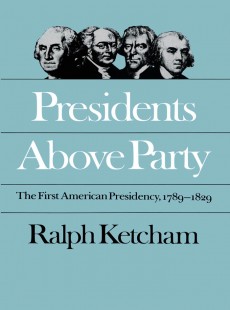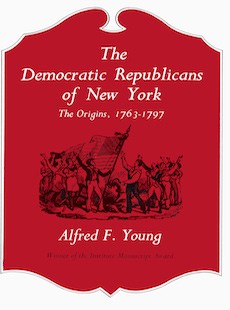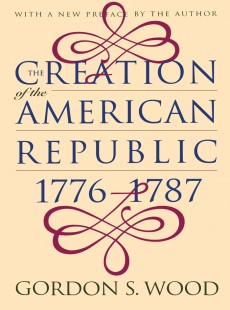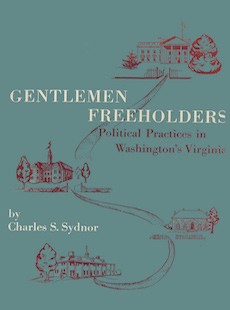
Presidents Above Party
The First American Presidency, 1789-1829
Ralph Ketcham
 Publisher: Omohundro Institute
Publisher: Omohundro Institute
Imprint: OIEAHC
Published: 03/1984
Reprint: 1987
Pages: 288
Subject: Political Science/Political History,History/United States: General
Paperback ISBN: 9780807841792
eBook ISBN: 9780807839362
DESCRIPTION
George Washington's vision was a presidency free of party, a republican, national office that would transcend faction. That vision would remain strong in the administrations of John Adams, Thomas Jefferson, James Madison, James Monroe, and John Quincy Adams, yet largely disappear under Andrew Jackson and his successors.
This book is a comprehensive and pathbreaking study of the early presidency and the ideals behind it. Ralph Ketcham examines the roots of nonpartisan leadership in Western thought and the particular influences on the founding fathers. Intellectual and political profiles of the first six presidents and their administrations emphasize the construction each put on the office, the challenges he faced, and the compromises he did and did not make. The erosion of nonpartisanship under Andrew Jackson is presented as a counterpoint that helps define the early presidency and the permanent transition from it.
Addressing the thoughtful citizen as well as the scholar, the author poses the fundamental questions about presidential leadership, then and now. The best study of the early presidency, this book is an intellectual portrait of the age that will challenge received notions of American history.
ABOUT THE AUTHOR
Ralph Ketcham is professor of American studies at the Maxwell School of Citizenship and Public Affairs of Syracuse University.
REVIEWS
"Ketcham takes the reader on a brilliant intellectual tour tracing 'ideas of leadership' from early Puritan beliefs of what constituted wise magistracy to the post-Revolutionary debates concerning the powers and office of the presidency."
--William and Mary Quarterly
"This original and challenging work throws fresh light on early conceptions of the Presidency and thereby incites fresh thought about the Presidency as an office."
--Arthur Schlesinger, Jr.
RELATED TITLES






